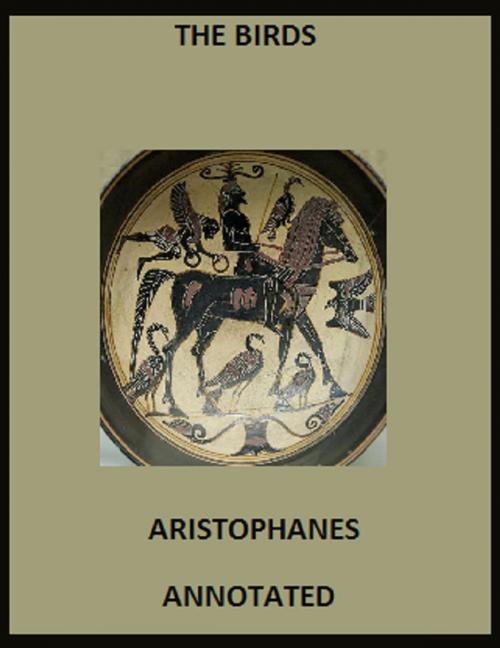| Author: | Aristophanes | ISBN: | 1230000603119 |
| Publisher: | Bronson Tweed Publishing | Publication: | August 11, 2015 |
| Imprint: | Language: | English |
| Author: | Aristophanes |
| ISBN: | 1230000603119 |
| Publisher: | Bronson Tweed Publishing |
| Publication: | August 11, 2015 |
| Imprint: | |
| Language: | English |
The Birds is a comedic work by the Ancient Greek playwright Aristophanes. It was performed in 414 BC at the City Dionysia where it won second prize. It has been acclaimed by modern critics as a perfectly realized fantasy remarkable for its mimicry of birds and for the gaiety of its songs. Unlike the author's other early plays, it includes no direct mention of the Peloponnesian War and there are few references to Athenian politics, and yet it was staged not long after the commencement of the Sicilian Expedition, an ambitious military campaign that had greatly increased Athenian commitment to the war effort. In spite of that, the play has many indirect references to Athenian political and social life. It is the longest of Aristophanes' surviving plays and yet it is a fairly conventional example of Old Comedy.
This edition has formatted for your reader, with an active table of contents. It has also been extensively illustrated and annotated, with additional information about the play and its author, including an overview, plot, background, discussion, relation to old comedy, influence, legacy, biographical and bibliographical information.
The Birds is a comedic work by the Ancient Greek playwright Aristophanes. It was performed in 414 BC at the City Dionysia where it won second prize. It has been acclaimed by modern critics as a perfectly realized fantasy remarkable for its mimicry of birds and for the gaiety of its songs. Unlike the author's other early plays, it includes no direct mention of the Peloponnesian War and there are few references to Athenian politics, and yet it was staged not long after the commencement of the Sicilian Expedition, an ambitious military campaign that had greatly increased Athenian commitment to the war effort. In spite of that, the play has many indirect references to Athenian political and social life. It is the longest of Aristophanes' surviving plays and yet it is a fairly conventional example of Old Comedy.
This edition has formatted for your reader, with an active table of contents. It has also been extensively illustrated and annotated, with additional information about the play and its author, including an overview, plot, background, discussion, relation to old comedy, influence, legacy, biographical and bibliographical information.















